Doha Tribeca Film Festival 2012: Wrap Up, Highlights and Impressions
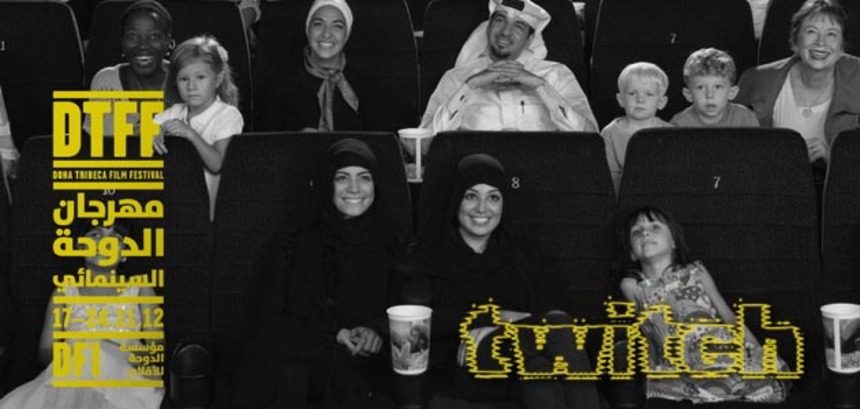
The 4th Doha Tribeca Film Festival wrapped up proceedings on Saturday night, bringing to an end an enthralling eight day celebration of World Cinema, including an impressive selection of films from the MENA (Middle East & North Africa) region, and a glimpse at the burgeoning industry that is sparking into life in Qatar. ScreenAnarchy was in attendance for the second half of the festival, where I was able to sample of variety of feature films, shorts and documentaries from around the region, as well as savour the unique delights of Doha itself.
Launched in 2009, the Doha Tribeca Film Festival is building some serious momentum in the city, screening more than 80 feature films from all over the world, to a local audience largely unfamiliar with cinema beyond Hollywood and Bollywood blockbusters. The centrepiece of the fledgling Doha Film Institute's calendar of events to promote cinematic interest and artistry in Qatar, the DTFF programme can already stand proudly alongside many major international film festivals.
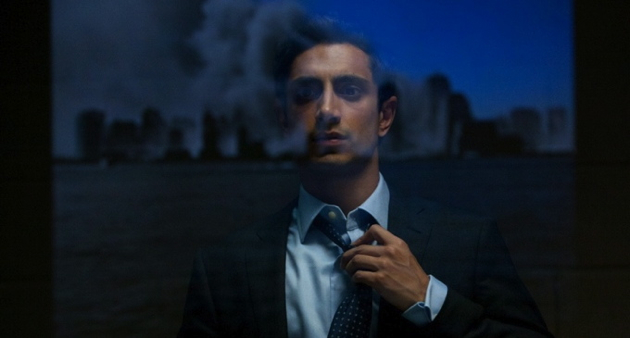
This year's festival opened with Mira Nair's The Reluctant Fundamentalist, which examines the growing East/West cultural divide post-9/11, while wrapping up on a lighter note, with the ambitious 3D animated family film, Rise of the Guardians. The Contemporary World Cinema programme for 2012 included new works from renowned filmmakers such as Ken Loach (The Angel's Share), Thomas Vinterberg (The Hunt) and Matteo Garrone (Reality), alongside special screenings of top tier commercial selections including Ben Affleck's much-lauded Argo, Martin McDonaugh's Seven Psychopaths, Yash Chopra's triumphant return to filmmaking, Till I Breathe This Life, and David O' Russell's awards favourite, Silver Linings Playbook.
Younger cinephiles were not to be left out either, with a considerable amount of the festival's energies going into all-day family events stationed along the gorgeous Katara Cultural Village beachfront. Events ranged from workshops and competitions to free outdoor screenings of undisputed world cinema classics, including Miyazaki Hayao's My Neighbour Totoro, Giuseppe Tornatore's Cinema Paradiso and Steven Spielberg's E.T. The Extra-Terrestrial.
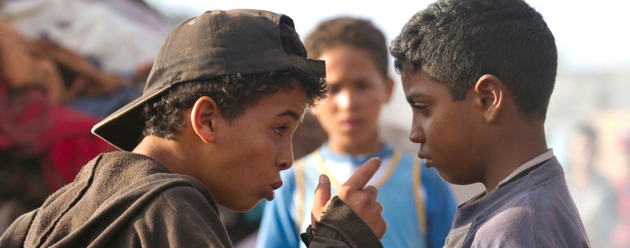
My attentions fell primarily on the Arab Film Competition titles, which comprised of seven narrative features, seven documentaries and thirteen shorts. Not unexpectedly, the themes of these films fell almost entirely into the familiar categories of the Arab Spring, which has swept across the MENA region since December 2010, as well as religious fundamentalism, gender inequality and illegal immigration. Particular highlights in the Narrative Feature section included Merzak Allouache's The Repentant, an incredibly engaging drama following a young freedom fighter as he attempts to renounce his past crimes and start a new life. Another favourite, Nabil Ayouch's Horses of God, follows young impoverished brothers in a Moroccoan slum, as they evolve from ambitious opportunists into radicalised suicide bombers. Both films had their world premieres at Cannes earlier this year and will likely get theatrical releases in a number of major markets.
In the Documentary Feature section, Damien Ounouri's Fidai is the deeply personal story of an ageing former FLN fighter in Algeria, who decades later, revisits the scenes of his numerous war crimes, and painfully reenacts some of the darkest moments from his past. Hanan Abdalla's In The Shadow of a Man, meanwhile, paints heart-rending portraits of four different Egyptian women, who all face incredible persecution and prejudice in their chosen life paths, due almost solely to their gender and marital status.
In the Arab Short Film Competition, the strongest entry was undoubtedly Sanctity, from Saudi actress and filmmaker Ahd. The story of a young pregnant widow who is forced to completely reinvent her life if she is to protect herself and her unborn child yielded one of the best performances of the festival. Pitting Areej, her heroine, against two wildly different men, each of whom pose both a threat and a possible avenue of escape, Ahd does an incredible job of illustrating the complexities of modern living for Saudi women today. Beyond the compelling story, however, Sanctity is also directed with assured style and an understanding of mood and aesthetics, while leaving the narrative with a tantalising open-ended finale.
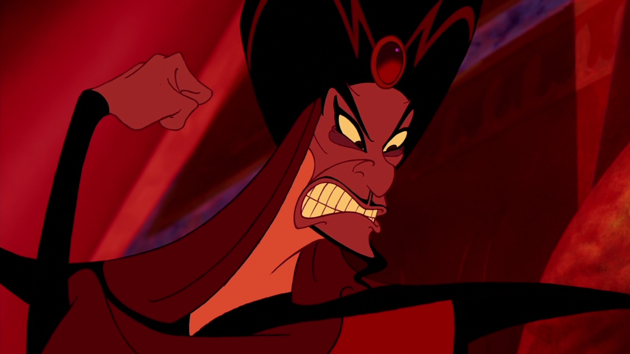
Elsewhere in the festival programme I was able to catch the provocative documentary Valentino's Ghost, together with an extended post-screening discussion from the film's director, Michael Singh. A passionate, if entirely one-sided exploration, the film charts the changing depiction of Arabs in Hollywood and Western media. Back in the early days of Cinema, Rudolph Valentino was Hollywood's biggest star in a string of Sheik films, in which the Arab was a symbol of exotic, sexualised heroism. Douglas Fairbanks continued this tradition in The Arabian Nights, but soon after, the Arab quickly became synonymous onscreen with the red indian - the unruly native who must be contained and conquered - after which their destiny was seemingly set in stone. By the mid-1990s, Arab terrorists were the go-to villain in Hollywood blockbusters, with everything from James Cameron's True Lies to Disney's Aladdin depicting Arabs as shifty, untrustworthy, fanatical and out for blood. There was a suggestion in the film's introduction that Valentino's Ghost would not be allowed to screen in the USA without some 30 minutes cut out of it. While Singh was anxious to suggest that the film's incendiary accusations were the cause - that a mostly Jewish-run film industry is conspiring to paint a negative view of Arabs - surely the film's heavy reliance on unlicensed clips from dozens of Hollywood movies will prove the more realistic stumbling block.
The last section of the festival worth mentioning was the Made in Qatar showcase of rising talent within the tiny Gulf state. There is clearly a conscious effort being made by the Doha Film Institute to encourage filmmakers to widen their perspective and ambition beyond simply covering the subjects that proved so prevalent in the Arab Film Competition. Not to say that these areas are unimportant or passé, but the emphasis here is on ensuring that Qatar builds a film industry that can endure, self-sustain and meet the needs and desires of an audience raised on blockbuster entertainment. In only its second year, Made in Qatar received more than 70 entries for this year's festival, made by Qatar-based filmmakers of 13 different nationalities.
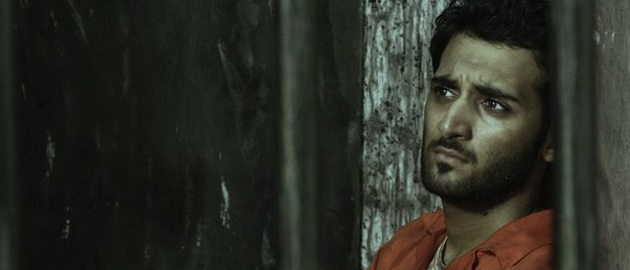
My DTFF experience was bookended by two Made in Qatar features, starting with Mohammed Al-Ibrahim and Ahmed Al-Baker's zombie thriller, Lockdown: Red Moon Escape and closing up with music documentary Lyrics Revolt, from filmmakers Shannon Farhoud, Ashlene Ramadan, Melanie Fridgant and Rana Khaled Al Khatib. Both films display an infectous youthfulness and vitality, as well as praise-worthy technical competence behind the camera.
Lockdown begins as a knockabout buddy comedy that sees two friends marooned in the desert after blowing a tyre, only to be set upon by a horde of wandering undead. Our hero escapes with his life, but is picked up by the military and jailed, where he faces supernatural challenges of a wildly different nature. Lyrics Revolt, meanwhile, taps into the rebellious exuberance of the Arab hip-hop scene that evolved out of France and North Africa in the late-1980s to become the soundtrack of the Arab Spring movement. Artists from all over the region speak about their influences, musical missions and the importance of their message to today's Arab youth, and the film boasts an incredible soundtrack that deserves recognition on its own.
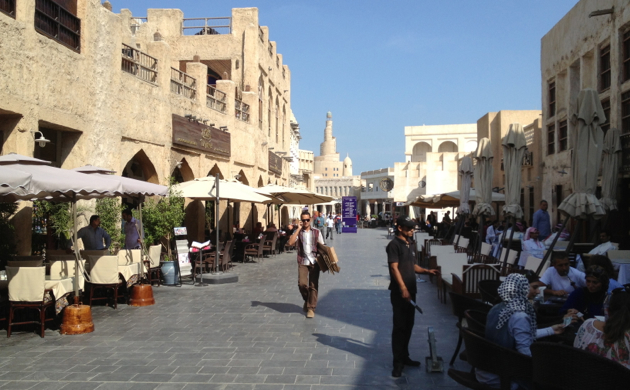
Beyond the cinemas and screening rooms of the Doha Tribeca Film Festival, attending the festival gave me a brief but memorable chance to explore the booming desert metropolis of Doha. Fifteen years since my last, even shorter visit, the city is almost unrecognisable. My hotel, in the newly regentrified Souq Waqif, was perfectly positioned to give me a taste for the more traditional aspects of the city. While we learned that the market places and cobbled streets of the souq were actually only a couple of years old, one could be forgiven for thinking we had been transported back in time many decades, and the warm air remains rich with the scent of spices and tobacco smoke. The festival's press centre was located here, and proved an ideal location to meet our everyday needs. I have never savoured fruit juices as sweet as those available here, together with bountiful cups of coffee and incredibly strong local tea.
Over on the other side of town, however, at the Katara Cultural Village, the vibe was one of vivacious modernity. An eclectic barrage of skyscrapers litters West Bay, displaying an uproarious diversity of architectural styles that put Hong Kong's own expressive skyline to shame. For every newly constructed hotel or steely apartment complex were three more in various stages of construction. Doha is clearly a city desperate to evolve and compete with its neighbour, Dubai, to be one of the most economically aggressive cities in the region, if not the world. One can only hope that the people of Qatar are as enthusiastic to compete on an artistic level as they are on a purely economic one.
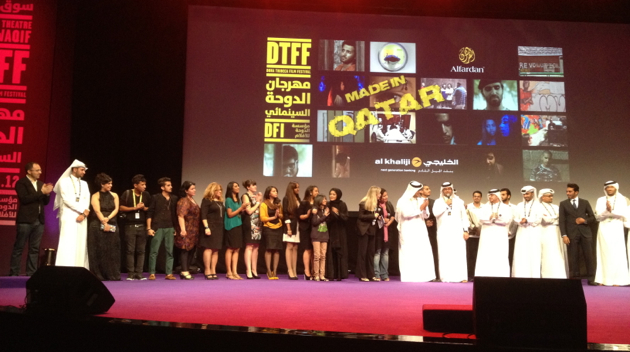
The Doha Film Institute is primed and ready to lead and nurture a new generation of filmmakers, and hopefully together they can cultivate a vibrant domestic film industry worthy of sharing with the rest of the world. It has been an incredibly exciting and unique experience to get a glimpse of a film industry in such an early phase, and thanks to this inspiring and eye-opening opportunity awarded me by the Doha Film Institute and Doha Tribeca Film Festival, it's a region that now has my full attention.
My deepest thanks and acknowledgements to Doha Film Institute's Shamir Allibhai, Variety Arabia's Joseph Fahim and EatSleepLiveFilm's David Hall, whose insight and conversation helped inform this article.

Do you feel this content is inappropriate or infringes upon your rights? Click here to report it, or see our DMCA policy.






